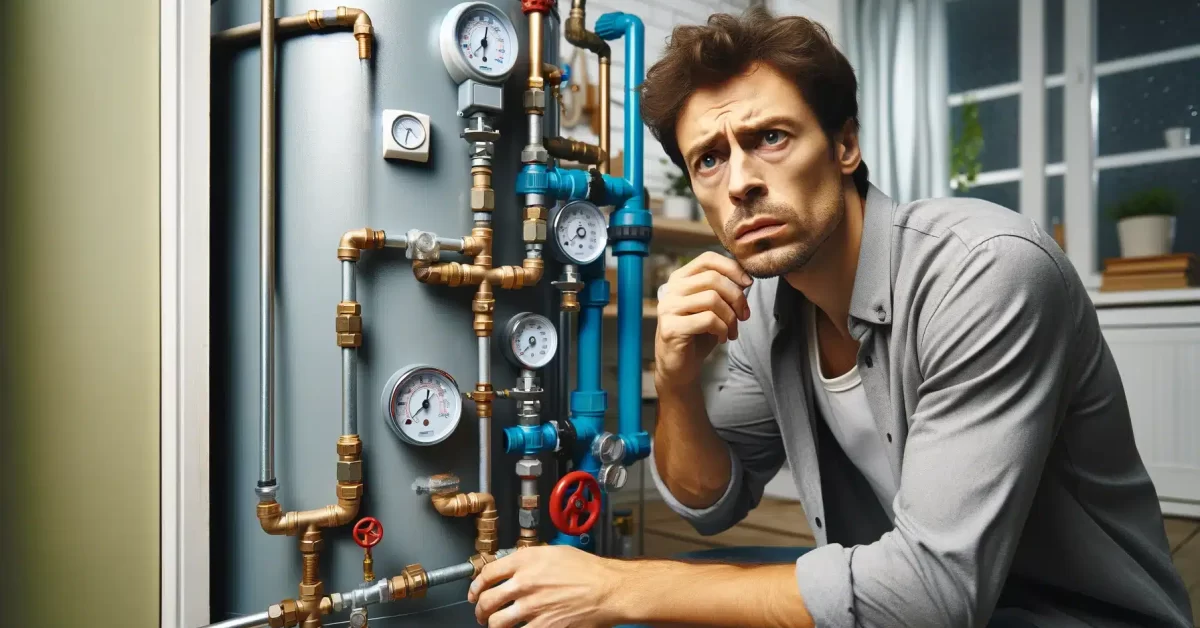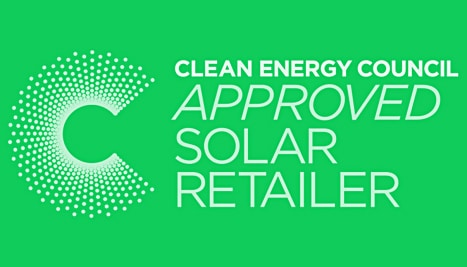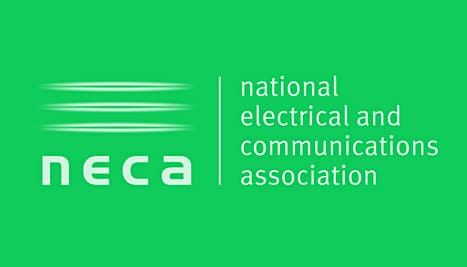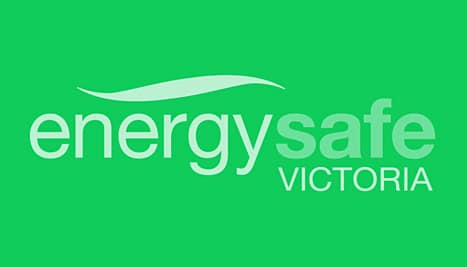NEWS & INSIGHTS
Is a Gas Hot Water System Dangerous?

The comfort of a warm shower is something we often take for granted, yet the heart of this comfort often lies in the gas hot water system that many homes use. Understanding the risks associated with these systems is crucial for safe and efficient usage. In this article, we’ll delve into the safety aspects of gas hot water systems, guided by insights from Australian Energy Upgrades, a leader in energy solutions.
How Gas Hot Water Systems Work?
Gas hot water systems are a popular choice in many households for their ability to provide hot water efficiently and quickly. These systems function by burning natural gas or LPG (Liquefied Petroleum Gas), which then heats the water that is distributed throughout the home. A closer look at how these systems work reveals several key components and features. The heating method involves using a burner to heat water stored in a tank, and when a hot water tap is turned on, the system ignites the burner.
The primary fuel source for these systems is either natural gas or LPG, both of which are efficient and commonly available energy sources. A thermostat is integral to the system, monitoring and controlling the water temperature to ensure it stays within a safe and comfortable range. The heated water is stored in an insulated tank, ready for use when needed, which is a significant convenience feature. One of the key benefits of these systems is their ability to provide hot water on demand, greatly reducing the waiting time for hot water.
Furthermore, these systems are known for their energy efficiency, as they only heat water as it’s needed, thus reducing energy wastage. While gas hot water systems are generally straightforward and effective, they require careful installation and maintenance to ensure safety and longevity.
Potential Hazards
Using a gas hot water system comes with certain risks that need to be managed responsibly. The primary concerns include:
- Gas Leaks:
- Causes: These can occur due to faulty equipment, poor installation, or wear and tear over time.
- Detection: Gas leaks can often be identified by a sulfuric smell (similar to rotten eggs) or by the sound of gas escaping.
- Risks: Leaks can lead to dangerous situations, such as fires or explosions, if not addressed promptly.
- Carbon Monoxide (CO) Poisoning:
- Sources: CO poisoning can occur from incomplete combustion in the gas burner.
- Symptoms: It can cause headaches, dizziness, nausea, and in severe cases, can be fatal.
- Prevention: Ensuring proper ventilation and regular maintenance are key to preventing CO buildup.
Understanding these risks is essential for safely operating a gas hot water system, making vigilance and regular checks crucial.
Safety Measures and Regulations
Safety is paramount when it comes to operating gas hot water systems. Australian Energy Upgrades recommends a range of safety measures and practices:
- Adherence to Regulations: Complying with national safety standards and building codes is crucial for safe installation and operation.
- Installation of Safety Devices:
- Carbon monoxide detectors should be installed near the system to alert occupants of any CO leaks.
- Gas detectors can also provide an additional layer of safety against gas leaks.
- Professional Installation and Maintenance:
- Having the system installed by a qualified technician ensures it meets all safety standards.
- Regular professional maintenance helps identify and fix potential issues before they become serious problems.
- Regular Inspections: Homeowners should periodically check the system for signs of wear, leaks, or damage.
- Emergency Preparedness: Knowing how to shut off the gas supply and who to contact in case of an emergency is vital.
Comparative Analysis
When it comes to selecting a hot water system, homeowners often find themselves comparing gas and electric models. This decision is influenced by various factors such as efficiency, safety, cost, and personal preferences. Here’s a detailed comparative analysis:
|
Aspect |
Gas Hot Water Systems |
Electric Hot Water Systems |
|
Heating Speed |
Known for quick heating, providing hot water rapidly. |
Generally slower to heat up compared to gas systems. |
|
Safety |
Requires careful handling due to combustion risks. |
Considered safer as there’s no combustion involved. |
|
Energy Efficiency |
High efficiency, especially for on-demand models. |
Less efficient than gas but improving with new models. |
|
Installation Cost |
Often more expensive to install due to gas piping. |
Usually cheaper to install than gas systems. |
|
Operating Cost |
Typically lower operating costs due to gas prices. |
Higher operating costs, dependent on electricity rates. |
|
Environmental Impact |
Emits greenhouse gases, less eco-friendly. |
Greener, especially if powered by renewable energy. |
|
Maintenance |
Requires regular checks for leaks and CO emission. |
Easier to maintain with fewer safety concerns. |
The choice between gas and electric hot water systems ultimately depends on individual needs, budget constraints, and environmental considerations.
Emergency Procedures
In the event of a gas leak or other emergency situations involving a gas hot water system, having a well-prepared emergency plan is crucial. This plan should encompass the following steps:
- Immediate Response: The first step is to shut off the gas supply to prevent any further leakage. This requires familiarity with the gas shutoff valve’s location and operation.
- Ventilation: If safe to do so, ventilate the area by opening windows and doors to disperse any accumulated gas.
- Evacuation: Avoid using any electrical switches or appliances and evacuate the premises immediately to prevent ignition of the gas.
- Emergency Services: Once safe, contact emergency services or the local gas utility company to report the incident.
- Professional Inspection: Before resuming use of the system, have it inspected and repaired by a qualified technician.
Being prepared with these procedures can significantly reduce the risk of a serious incident.
Best Practices for Homeowners
For homeowners, maintaining the efficiency and prolonging the lifespan of hot water systems involves several best practices:
- Regular Inspections: Conduct periodic checks for any signs of wear, leaks, or damage.
- Professional Maintenance: Schedule regular maintenance with qualified technicians to ensure the system operates safely and efficiently.
- Understand Your System: Familiarize yourself with the basics of how your hot water system works, including heat pump working principles if you have or are considering this type of system.
- Safety Education: Educate all family members about the basics of gas safety, including the signs of a gas leak and what to do in an emergency.
Environmental Considerations
For those looking to reduce their environmental impact, exploring alternatives to traditional gas hot water systems is a worthwhile consideration. Commercial solar solutions stand out in this regard. These systems harness solar energy to heat water, which significantly reduces greenhouse gas emissions. Although the initial investment in solar solutions might be higher than conventional systems, they offer long-term savings on energy bills, making them a cost-effective option in the long run.
Additionally, solar hot water systems use a clean, renewable energy source, establishing them as an eco-friendly choice for environmentally conscious homeowners. This shift towards renewable energy not only benefits the environment but also aligns with the growing global emphasis on sustainable living.
Conclusion
While gas hot water systems are generally safe when properly maintained, understanding the associated risks is essential. By following safety guidelines and considering efficient alternatives like solar solutions, homeowners can enjoy the benefits of hot water without compromising safety.
For more information and expert advice on hot water systems and energy-efficient solutions, Australian Energy Upgrades is a reliable resource, offering a range of services to meet diverse needs.
COMPLETED PROJECTS, PARTNERS AND MEMBERSHIPS





































Australian Energy Upgrades Credentials

Australian Energy Upgrades have signed on to the Clean Energy Council Solar Retailer Code of Conduct – the only solar industry code of conduct authorised by the Australian Competition and Consumer Commission (ACCC).

Australian Energy Upgrades are registered solar installers with Solar Victoria. This allows us to provide eligible households with subsidised solar installations under the Solar Victoria Rebate scheme.

Australian Energy Upgrades is a member of the National Electrical and Communication Association (NECA), recognised nationally as the peak industry body of our field. Our membership ensures our employees have the highest level of training and resources available to fulfil our work to the highest possible standard.

Australian Energy Upgrades holds a Registered Electrical Contracters license (REC:23631). You can be confident your installation is conducted to the highest level of safety and compliance in accordance with all Australian standards and regulations. We don’t just hire qualified people, we are qualified.

- 1300 996 917
- [email protected]
- P.O. Box 2077 Grovedale East 3216
Our passion is to help Australians become more energy independent. After a difficult 10 years of constant power company price increases, black-outs and coal-fired power plant failures, we’re seeing more Australians searching for a better solution.
